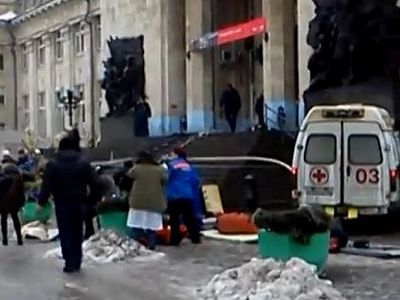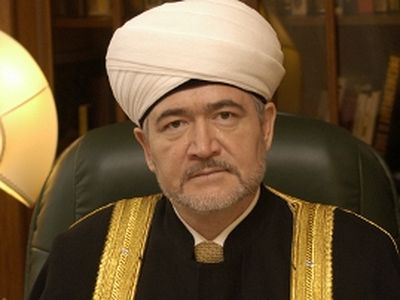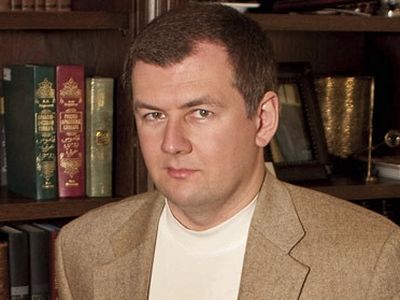Volgograd, December 30, 2013
A terrorist attack in the Russian city of Volgograd has killed at least 14 passengers on a trolley bus. The explosion comes a day after a suicide bombing in the city which killed 17 people and injured scores of others.
Health officials reported 14 fatalities in Monday morning’s blast and 28 injured, including 27 being treated in hospital, according to the latest update.
An infant aged around five to eight months is among the injured. Doctors are fighting for the baby’s life.
The identity of the baby has not been established yet. It is feared that its parents were killed in the explosion.
There is also a pregnant woman among the victims, who is in hospital in a serious condition.
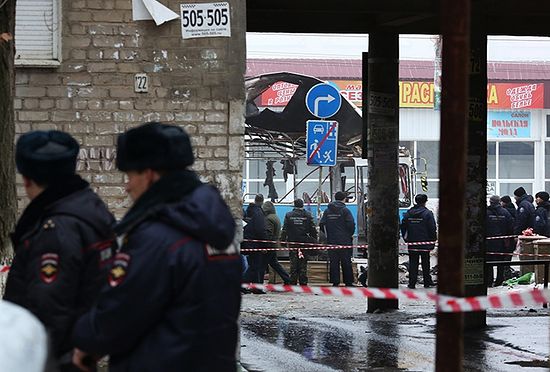 Agents of law enforcement and operative services work at the site of an explosion on a trolleybus near Kachinsky Market in Volgograd. Photo: RIA Novosti / Kirill Braga
Agents of law enforcement and operative services work at the site of an explosion on a trolleybus near Kachinsky Market in Volgograd. Photo: RIA Novosti / Kirill Braga
The explosion was set off by a suicide bomber and not triggered remotely, spokesman for the Russian Investigative Committee, Vladimir Markin, confirmed.
“The investigation believes that the timing and place of the terrorist attack was selected because the trolley bus line is used by many people, including students from nearby colleges,” Markin said.
Investigators believe that Monday’s blast and the previous day’s terrorist attack are connected. Both bombs were coated with identical metal fragments, which made the devices more deadly.
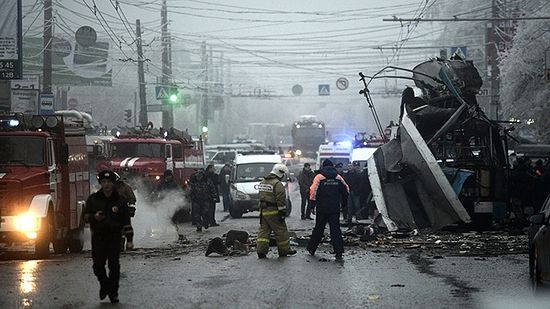 Members of the emergency services work at the site of a bomb blast on a trolleybus in Volgograd December 30, 2013. Photo: Reuters / Sergei Karpov
Members of the emergency services work at the site of a bomb blast on a trolleybus in Volgograd December 30, 2013. Photo: Reuters / Sergei Karpov
The blast wave was powerful enough to shatter some windows in nearby buildings. The Investigative Committee estimated that the power of the blast was equal to ate least 4 kg of TNT.
“I woke up because of an enormous blast I heard. I heard the glass shattering in the first two stories of the building. I looked out of the window, it was still dark, and I saw a bus that was ripped by a blast and people were running away from it screaming,” Alina Averyasova, an eyewitness, told RT.
The bus was near one of the city markets when the explosion happened. The site has been cordoned off, with traffic diverted to other streets.
Investigators said they are questioning blast witnesses and collecting footage from CCTV cameras around the scene. The trolley bus itself was not equipped with a camera, they said. Police are offering witness protection to anyone if needed when offering information on the perpetrators of the terrorist attack.
First images from the scene showed a damaged vehicle partially reduced to its metal carcass and dead bodies scattered around.
All the people injured by the blast are in serious condition, Health Minister, Veronika Skvortsova, said.
“They have burns, multiple traumas, blast-injuries. If needed, they will be airlifted to Moscow,” she told Rossiya24 TV.
Overall the survivors of Monday’s blast are in worse condition that those, who survived Sunday’s bombing.
The Emergencies Ministry is preparing a flight from Moscow to Volgograd with medical equipment and personnel for possible transportation of patients to Moscow. Local medics say three of the surviving victims may require the airlift.
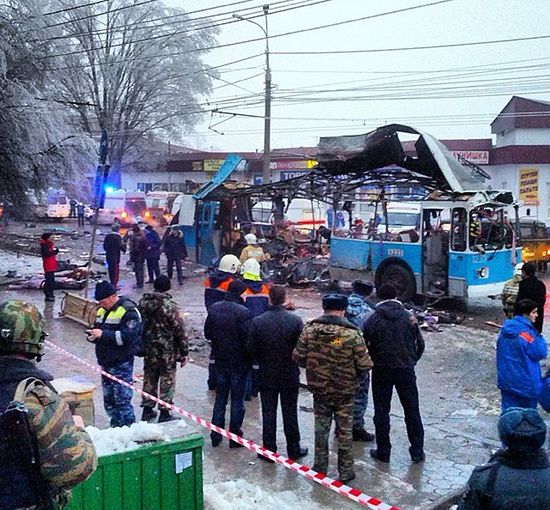 An explosion on a trolleybus near Kachinsky Market in Volgograd. Photo: RIA Novosti / Alexey Ulianov
An explosion on a trolleybus near Kachinsky Market in Volgograd. Photo: RIA Novosti / Alexey Ulianov
Morale in Volgograd appears to be badly damaged by the terrorism spree the city has experienced.
“It’s scary. Everybody left buses and trams and are walking. People won’t use public transport,” a resident told Ria Novosti.
Less than an hour after the news of the blast broke, Russian twitter post started spreading reports of a new explosion at a tram station. The rumor was not confirmed. Journalists called on social media to stop spreading panic.
The government of the Volgograd region canceled an all-state-sponsored New Year mass celebration for children on Tuesday, citing security concerns and the lack of appropriateness such rejoicing may have. Many private companies organizing similar events followed the lead.
The Volgograd region has declared a period of mourning, starting on Monday for the victims of the two latest bombings. This is a 48 hour extension of the commemoration, which was originally intended to run from Wednesday to Friday.
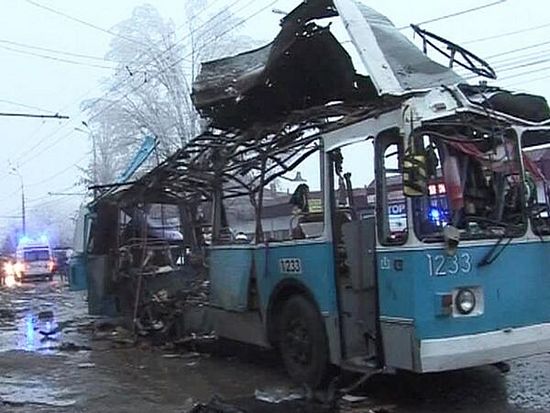
Moscow is beefing up security in the wake of the Volgograd bombings, head of the regional security department of the mayor’s office, Aleksey Mayorov, reported. This comes in addition to increased police presence ahead of the planned New Year celebrations in the city.
“We will recheck our focus on the approaches to the sites of mass gatherings, both for pedestrians and for surface and underground transport,” he said.
The new deaths in Volgograd come just a day after a suicide bomber targeted the city’s railway station, killing 14 people on the spot and injuring more than 30 others. Three of those injured succumbed to their wounds in hospital.
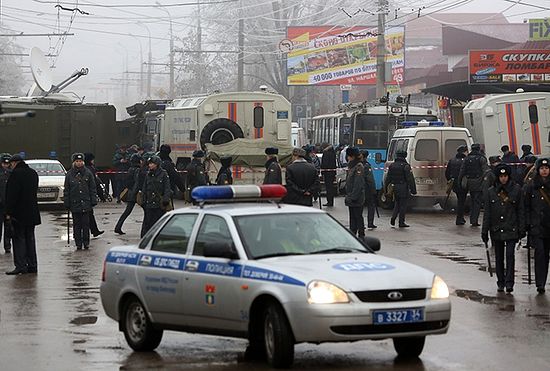 Law enforcement agents at the site of an explosion on a trolleybus near Kachinsky Market in Volgograd. Photo: RIA Novosti / Kirill Braga)
Law enforcement agents at the site of an explosion on a trolleybus near Kachinsky Market in Volgograd. Photo: RIA Novosti / Kirill Braga)
And in October the city witnessed yet another terrorist attack, when a suicide bomber set off an explosion in a bus heading to Moscow, killing 6 people and injuring almost 40.
Despite the terrorist attacks, the Sochi Olympic Games will not require any extra security measures to be taken, the president of Russia’s National Olympic Committee stated. “Everything needed has already been done,” he said.
Volgograd was chosen as the target for the series of bombings due to its proximity to the troubled region of North Caucasus, believes Gordon Hahn from the Center of International Strategy.
“Suicide bomb attacks are carried out in Russia by mujahidin. It’s very likely that a group affiliated with the ‘Caucasus Emirate’ could be involved and we talked about ethnic Russian suicide bombers, which these organizations try to recruit,” he told RT.
The attacks in Volgograd are part of a terrorist campaign to derail the Olympic Games in Sochi, believes Aleksey Popov, former member of the Alpha special forces unit.
“Terrorists are trying to spread fear ahead of the Winter Olympics so that people become scared to go to Sochi. No wonder they have chosen the holiday season to make it even more painful for the people and to draw plenty of world attention,” he told RT.
He added: “I believe it won’t have any effect on the Olympics and the people who were planning to come will still do it. They are safe because almost $2 billion was allocated to security measures; that’s even more than the sum for the London Olympics.”
